Gardening is more than just a hobby; it’s a practice that shapes the landscape of our world, leaving a lasting legacy for future generations. By nurturing seeds, we not only cultivate beautiful spaces but also foster a deeper connection with nature and community. As we tend to our gardens, we plant the roots of sustainability, creativity, and heritage that will bear fruit for centuries to come. From teaching children the joy of growing their own food to preserving biodiversity, gardening plays a pivotal role in ensuring a thriving planet for generations yet to be born. This article explores how gardening today can benefit future generations, emphasizing its role in sustainability, education, and the preservation of our natural world.
Key Takeaways
– Adopt sustainable practices to protect the planet and promote eco-friendly habits.
– Ensure food security by growing your own food and becoming self-reliant.
– Preserve biodiversity through heirloom seeds and native plants.
– Build a stronger community by sharing knowledge and produce.
– Support local economies through small-scale farming and urban initiatives.
– Leave a lasting legacy by passing on gardening traditions to future generations.
How Can Gardening Today Benefit Future Generations?
Gardening today plays a vital role in shaping a healthier and more sustainable world for future generations. By adopting eco-friendly practices, gardeners contribute to biodiversity, promote food security, and foster essential life skills that future generations can inherit and build upon.
Here are the key ways gardening today benefits future generations:
- Biodiversity Conservation : Planting native species attracts pollinators like bees and butterflies, which are crucial for ecosystem health. This supports biodiversity and ensures natural systems remain intact for future generations.
- Food Security : Gardening contributes to local food production, reducing reliance on industrial agriculture. This resilience becomes increasingly important as climate change affects global food supplies.
- Teaching Environmental Stewardship : Gardens provide hands-on learning opportunities for kids and adults alike, teaching about ecosystems, sustainability, and the importance of caring for the environment.
- Connecting Children to Nature : Studies show that children who grow up around gardens develop a stronger connection to nature, fostering a deeper appreciation for the outdoors.
- Community Building : Gardens often become hubs for community interaction, sharing knowledge, and collaborative projects, creating a sense of belonging that can be passed down.
- Healthier Living Environments : Clean air and green spaces improve mental and physical health, setting a foundation for future generations to thrive.
- Preserving Heritage : Heirloom gardening keeps traditional practices alive, ensuring cultural legacy and diverse genetic resources for future use.
- Inspiring Eco-Friendly Habits : Early exposure to sustainable practices in gardening instills values that can influence lifelong decisions, contributing to a healthier planet.
By embracing gardening today, we lay the groundwork for a brighter, more sustainable future. Let’s pass on the joy and responsibility of nurturing our world to the next generation. Learn more about sustainable gardening practices at Old Seed .
Steps Gardeners Can Take Today
To ensure gardening continues to thrive for future generations, consider implementing these thoughtful and actionable steps:
- Adopt Heirloom and Open-Pollinated Seeds : Choose seeds that have been passed down through generations. These seeds are genetically diverse and better adapted to local conditions. Old Seed offers a variety of heirloom options perfect for sustainable gardening.
- Practice Water Conservation : Install drip irrigation systems or rainwater harvesting tools to minimize water usage. This ensures that precious resources are preserved for future generations. Learn more about efficient watering techniques .
- Support Pollinator Habitats : Create habitats for bees, butterflies, and other pollinators by planting native flowers and leaving areas undisturbed. Pollinators are crucial for food production, and their decline threatens global agriculture. Discover pollinator-friendly gardening practices .
- Use Organic and Biodegradable Materials : Opt for compostable mulch and natural fertilizers like worm castings. These methods enhance soil health without harming the environment. Explore organic gardening solutions .
- Educate and Inspire Others : Share your passion for sustainable gardening with family, friends, and community members. Host workshops or create a blog to spread awareness about eco-friendly practices. Find gardening tutorials and resources .
- Plant Native Species : Replace invasive plants with native varieties that thrive in your region. Native plants require less water and support local wildlife. Source native seeds for your garden .
- Reduce Waste : Compost kitchen scraps and yard waste to create nutrient-rich soil amendments. This not only benefits your garden but also reduces landfill waste. Master the art of composting .
- Share Your Knowledge : Document your gardening journey and successes online or in a journal. This helps future gardeners learn from your experiences and continue sustainable practices. Track your gardening progress .
By taking these steps today, you contribute to a legacy of sustainable gardening that will enrich the lives of countless future generations. Visit Old Seed to discover more resources and tools for creating a thriving garden that lasts forever.
Significance of Gardening for Future Generations
Gardening plays a vital role in shaping a sustainable and healthier future for generations to come. Its impact extends beyond individual households, influencing communities, ecosystems, and cultural heritage.
Environmental Sustainability
Gardening contributes significantly to environmental sustainability by promoting eco-friendly practices. By growing your own fruits, vegetables, and herbs, you reduce reliance on industrial agriculture, which often has a high carbon footprint. This approach fosters a deeper connection to nature and encourages responsible resource management. OldSeed offers valuable resources on heirloom gardening methods that further enhance sustainability.
Educational Opportunities
Teaching children and youth about gardening instills essential life skills and environmental stewardship. It allows them to understand where food comes from, fostering a respect for natural processes. Gardens also provide hands-on learning experiences, helping kids develop problem-solving abilities and a love for the outdoors. Explore fun and educational gardening activities designed for young learners.
Health Benefits
Gardening promotes physical health through exercise and exposure to fresh air. It also boosts mental well-being by reducing stress and anxiety. Studies show that children who garden often perform better academically and exhibit improved social behaviors. Encouraging gardening today ensures future generations grow up healthier and more resilient.
Cultural Preservation
Gardening preserves cultural heritage and traditions passed down through generations. By saving and growing heirloom seeds, we protect biodiversity and maintain agricultural diversity. Discover our collection of rare and unique seeds that carry historical significance.
Community Impact
Gardens foster a sense of community as people share knowledge and resources. Neighbors often collaborate on collective gardens, strengthening social bonds and creating local food security. This collaborative spirit is crucial for building resilient communities capable of addressing future challenges.
Conclusion
Gardening is more than a hobby; it’s a commitment to the future. By nurturing our environment, educating the next generation, and preserving cultural legacy, we ensure a healthier, more sustainable world for all. Let’s invest in gardening today for the benefit of tomorrow.
Why Start Gardening Today with Future Generations in Mind?
Gardening today isn’t just about tending to plants—it’s about nurturing a sustainable future for generations to come. By taking proactive steps to grow your own food, preserve biodiversity, and promote eco-friendly practices, you’re contributing to a healthier planet that future generations can inherit.
- Sustainable Practices: Gardening promotes environmental sustainability by reducing carbon footprints, conserving water, and fostering biodiversity. Actions like composting, using renewable energy, and planting native species all help protect the planet for the future.
- Food Security: With global food supplies under threat, gardening ensures a reliable source of fresh, nutritious food. It empowers individuals to take control of their food supply and become more self-sufficient during uncertain times.
- Heirloom Preservation: By growing heirloom and rare seeds, you help protect genetic diversity. These varieties are often more resilient to climate change and offer unique flavors that future generations may cherish.
- Community Building: Gardens foster a sense of community. Sharing knowledge, produce, and experiences can inspire others to get involved and create a ripple effect of environmental stewardship.
- Economic Impact: Small-scale farming contributes to local economies, creates jobs, and reduces urban sprawl. It supports rural development and strengthens the connection between food production and community well-being.
- Legacy and Tradition: Gardens can become a family tradition, teaching future generations about nature, sustainability, and the joy of growing their own food. This legacy can span across generations, ensuring that the importance of environmental care is passed down.
To learn more about how you can start gardening sustainably and leave a lasting positive impact, visit Old Seed ‘s comprehensive guide on sustainable gardening practices and heirloom preservation.
How Does Gardening Contribute to a Sustainable Future for Generations to Come?
Gardening plays a pivotal role in fostering a sustainable future for generations to come. By adopting eco-friendly practices, gardeners can positively impact the environment, promote biodiversity, and ensure long-term agricultural resilience. Here’s a breakdown of how gardening contributes to sustainability:
- Sustainable Land Management :
- Soil Health : Gardening practices like composting and crop rotation improve soil fertility, reducing the need for synthetic fertilizers. Healthy soils sequester carbon, contributing to climate change mitigation.
- Water Conservation : Drip irrigation systems and rainwater harvesting techniques help conserve water, which is crucial in regions facing water scarcity.
- Biodiversity Support :
- Gardens provide habitats for pollinators like bees and butterflies, which are essential for ecosystem health. Native plants attract these species, promoting biodiversity and ecological balance.
- Local Food Production :
- Growing fruits, vegetables, and herbs reduces reliance on long-distance transportation, lowering carbon emissions associated with food distribution. This localized food production enhances food security and reduces the carbon footprint of diets.
- Community Engagement :
- Urban gardens and community farms foster a sense of responsibility and stewardship among residents. They encourage individuals to take an active role in environmental sustainability, creating a ripple effect of eco-conscious behavior.
- Reduced Chemical Use :
- Organic gardening eliminates the use of harmful pesticides and herbicides, protecting ecosystems and human health. This approach aligns with the principles of sustainable living and environmental stewardship.
- Preservation of Heirloom Seeds :
- By saving and planting heirloom seeds, gardeners help preserve genetic diversity. This diversity is vital for adaptability in the face of changing climatic conditions, ensuring food security for future generations.
Gardening is not just a hobby; it’s a sustainable practice that benefits both the environment and humanity. By embracing eco-friendly techniques, gardeners can leave a legacy of sustainability for generations to come. To learn more about sustainable gardening practices and heirloom seed preservation, visit Old Seed or explore related resources like Gardenify and Green Haven Acres . These platforms offer valuable insights and tools for anyone looking to make a positive impact through gardening.
What Role Does Gardening Play in Preserving the Environment for Future Generations?
Gardening plays a pivotal role in preserving the environment for future generations through various sustainable practices that benefit both ecosystems and human communities. Here’s a detailed breakdown of its impact:
Reducing Carbon Footprint
Gardening contributes significantly to lowering carbon emissions. By cultivating plants and maintaining green spaces, gardens act as carbon sinks, absorbing CO2 and purifying the air. Techniques like composting reduce waste and minimize chemical runoff, further benefiting the environment.
Promoting Biodiversity
Gardens provide habitats for pollinators, birds, and beneficial insects crucial for ecosystem health. Native plants support local wildlife, while diverse plant selections enhance biodiversity. Community gardens and urban farms also foster social bonds while producing sustainable food.
Conserving Water Resources
Efficient irrigation systems and drought-resistant plants help conserve water. Rainwater harvesting and greywater recycling further reduce demand, making gardening a sustainable water management practice.
Enhancing Soil Health
Healthy soils are the foundation of any garden. Organic matter added through composting improves soil fertility and structure, preventing erosion and sequestering carbon. This supports long-term environmental resilience.
Combating Climate Change
Gardening promotes climate resilience by planting species adapted to changing conditions. Trees and shrubs act as natural carbon storage solutions, contributing to broader efforts in carbon sequestration.
Fostering Eco-Conscious Behavior
Engaging in gardening often leads to a deeper connection with nature, inspiring individuals to adopt more sustainable lifestyles. Educating others about environmental stewardship through community gardens spreads awareness and encourages broader conservation efforts.
Preserving Genetic Diversity
Heirloom and native plants preserve genetic diversity, which is essential for adaptability in a changing world. Seed-saving practices protect rare varieties, safeguarding biodiversity for future generations.
Supporting Local Economies
Community-supported agriculture and local markets reduce reliance on industrial agriculture, promoting regional sustainability. Urban farming initiatives empower individuals to contribute to food security while preserving rural landscapes.
In conclusion, gardening is not just a hobby but a vital tool in preserving the environment for future generations. By adopting sustainable practices, we can create healthier ecosystems, promote biodiversity, and inspire a culture of environmental responsibility. Get involved in gardening today and join the movement toward a greener, more sustainable tomorrow.

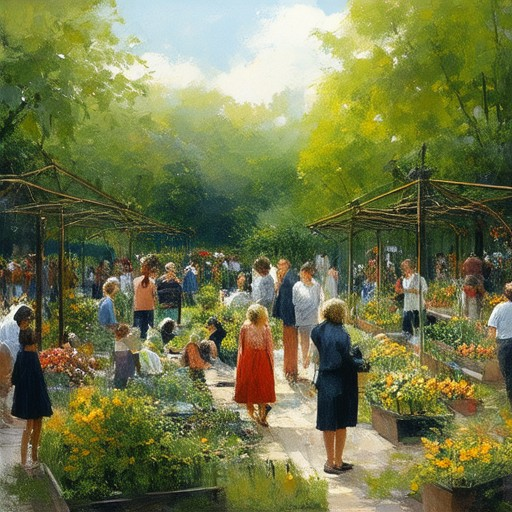
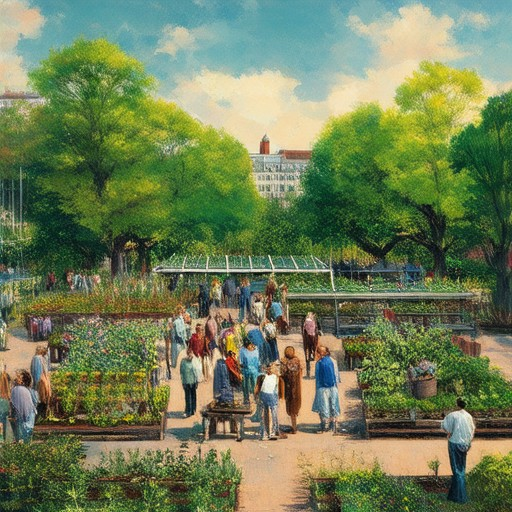
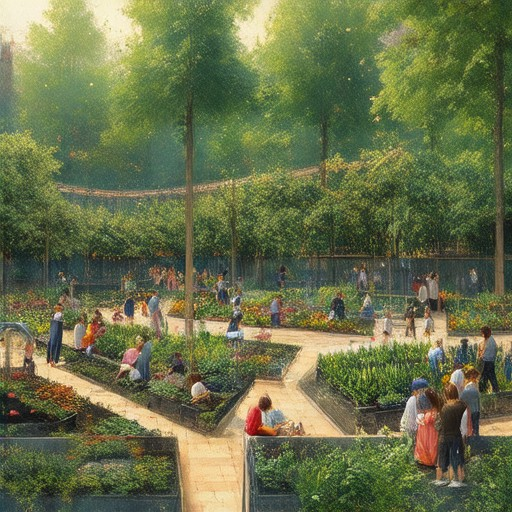
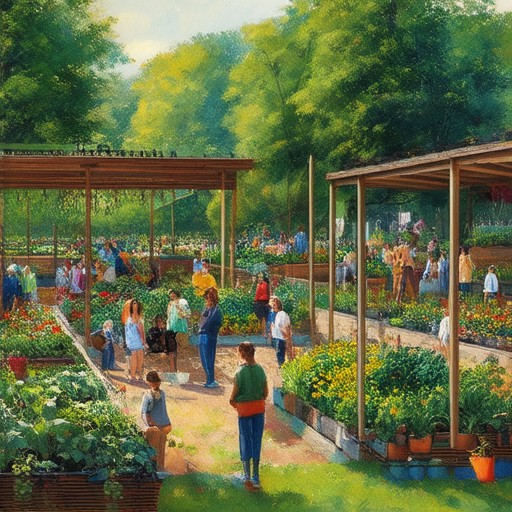
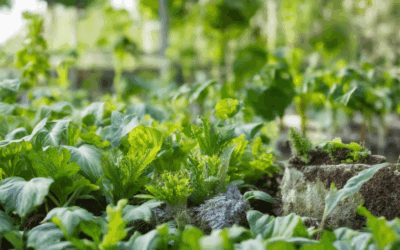
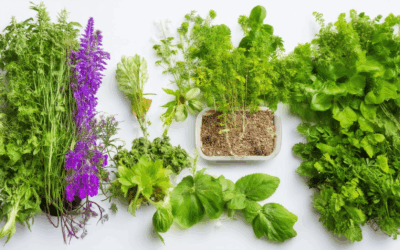
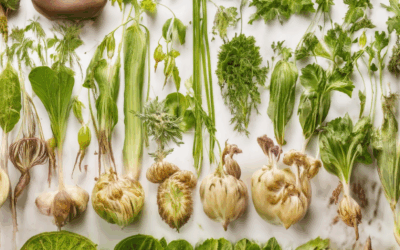
0 Comments